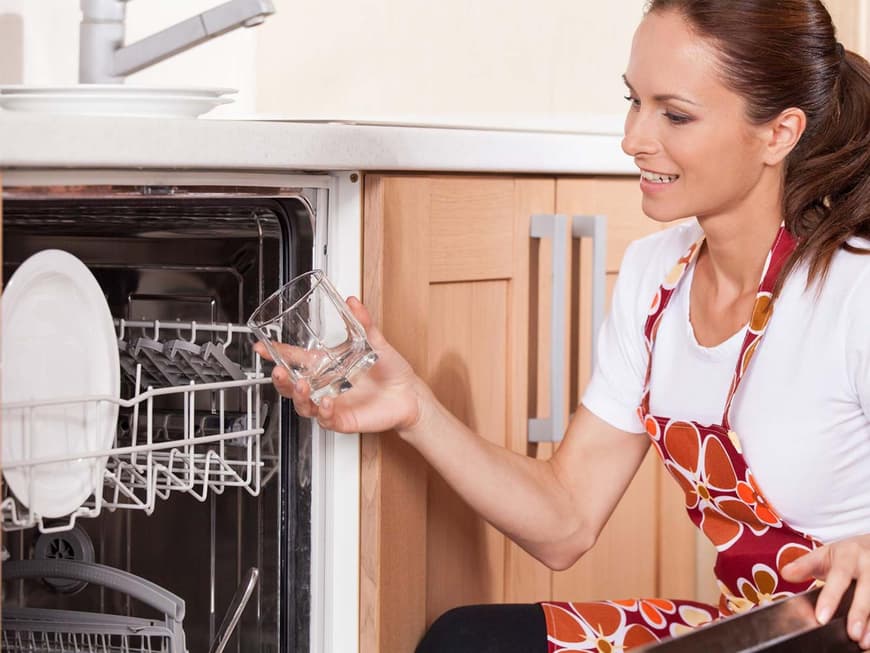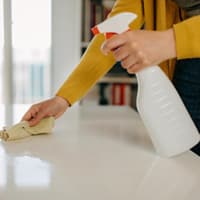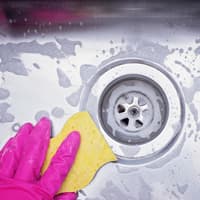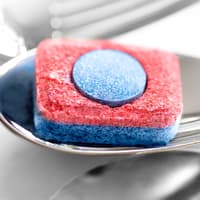
Why do glasses become cloudy in the first place?
There are two main reasons: Corrosion and calcification. While traces of corrosion cannot be treated afterwards, there is a lot that can be done about calcification. It is best if neither occurs in the first place. Read the article!
Milky and cloudy drinking glasses - how to prevent it
Corrosion: Simply put, when glasses corrode, oxides react with oxygen. You can recognize it in drinking glasses by the ugly streaks, stripes or even discoloration. As these marks are practically burnt into the surface of the glass and are therefore not superficial soiling, they can no longer be removed. Unfortunately, such glasses should be thrown away.
How to prevent this:
- To protect glasses, you should wash them on the specified gentle wash cycle of approx. 45 degrees. Excessively high washing temperatures will damage them.
- If you can't get the dishwasher full with glasses alone, then wash your glasses by hand.
- Use good cleaning products for the dishwasher - expensive does not always mean better. Check out Stiftung Warentest, for example, which regularly puts cleaners and the like under the microscope.
- Buy good quality glassware, as poor quality also has to be disposed of more quickly.
Calcification: If your water is very calcareous, this is usually due to hard water. Ask your water company about the degree of hardness and then do the following:
This is how you can prevent this:
- Add salt or rinse aid to the dishwasher regularly.
- The dosage depends on the degree of hardness, which is divided into hard, medium and soft - you have checked this with your water company.
SOS aids - in contrast to corroded glasses, you can make calcified, cloudy glasses shine again. The following household remedies are available for this:
- Vinegar: Acetic acid dissolves limescale quickly and reliably. Mix vinegar, preferably vinegar essence, with water and soak the glasses in it. Then rinse the glasses.
- Citric acid: The same works with lemon juice. You can use lemon cleaner to descale kettles and fresh, squeezed lemons or lemon concentrate for cooking and baking.
- Denture cleaners: They not only make third parties sparkling clean, but also cloudy glasses. Give it a try!
- Baking soda: This all-rounder can also be used for cloudy glasses.
Read also:
What shouldn't go in the dishwasher?
Cleaning the dishwasher - here's how!
Date: 25.05.2020
Author: Tanja Seiffert






